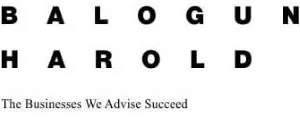- within International Law topic(s)
- with Finance and Tax Executives
- in European Union
- with readers working within the Law Firm industries
- with readers working within the Securities & Investment industries
- within Consumer Protection, Compliance and Privacy topic(s)
- in European Union
More investors are now leveraging Nigeria's free trade zones as a strategic gateway into the market, capitalizing on the significant increase in businesses and robust growth trends over time. In this brief update, we highlight some of the most important reasons why foreign investors are considering operating from a Free Trade Zone in Nigeria:
- Universal Tax Exemption: Free Zone Enterprises operating in a Free Trade Zone Nigeria are exempt from federal, state and government taxies and levies. Free Zone enterprises can manage their tax exposure by relying on Section 4 of the NEPZA Act.
- Reduction of Foreign Exchange Risk: Free Zone Enterprises operating in a Free Trade Zone Nigeria can issue invoice in dollars and collect payments for goods and services sold into customs territory in dollars or in other foreign currency of choice. This is particularly important in view of the Federal Government's restrictions on dollar transactions locally. Free Zone Enterprises can manage their foreign exchange exposures by leveraging section 11(1) of the NEPZA Act.
- Zero Import Duty: Free Zone Enterprises operating in a Free Trade Zone in Nigeria are free to import capital goods, consumer goods, raw materials, components and articles required for an approved business, including articles for construction free of import duty. Free Zone Enterprises can manage exposure to import bureaucracies by leveraging section 12 (1) of the NEPZA Act.
- 10-Year Strike & Lock Moratorium: Free Zone Enterprises operating in a Free Trade Zone in Nigeria are entitled to a 10-year Strike and Lock Moratorium. In essence, strikes or lock-outs within 10 years from the time a Free Zone Enterprise commences business are prohibited. Free Zone Enterprises can manage their exposure to trade disputes by leveraging section 18 (5) of the NEPZA Act.
Read Also: NERC Shifts Nigerian Electricity Market to Bilateral Trading
What Kind of Activities Can be Carried out Within a Free Trade Zone
The NEPZA Act lists the activities/business that may be carried out within the Free Trade Zone and gives the NEPZA the statutory powers to include additional activities from time to time. The approved activities include manufacturing goods for export, warehousing, freight forwarding and customs clearance, handling of duty-free goods, banking, stock exchange, insurance, reinsurance, and other financial services, import of goods for special services/exhibitions/publicity, international commercial arbitration services, and activities relating to integrated zones.
The content of this article is intended to provide a general guide to the subject matter. Specialist advice should be sought about your specific circumstances.



